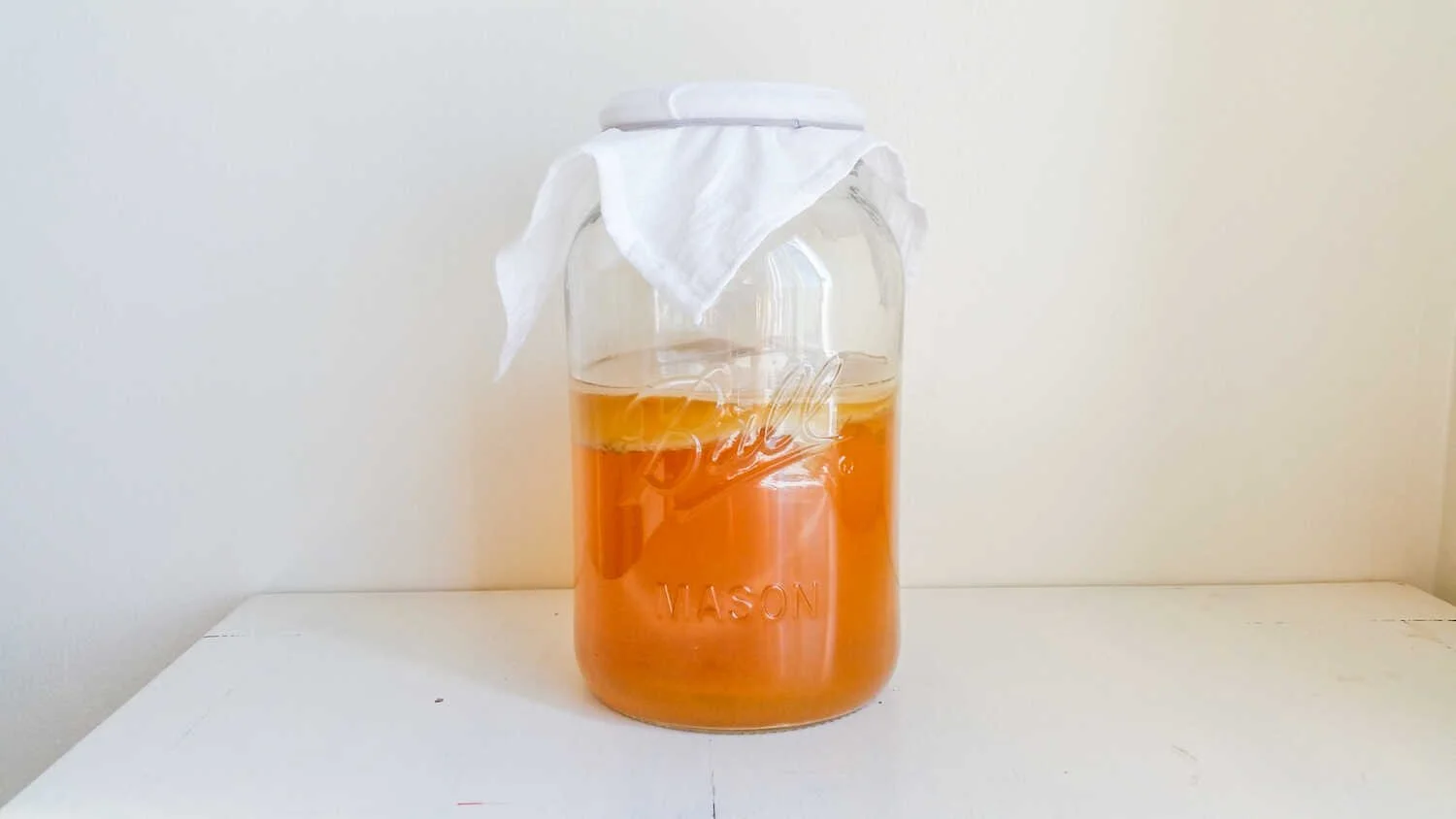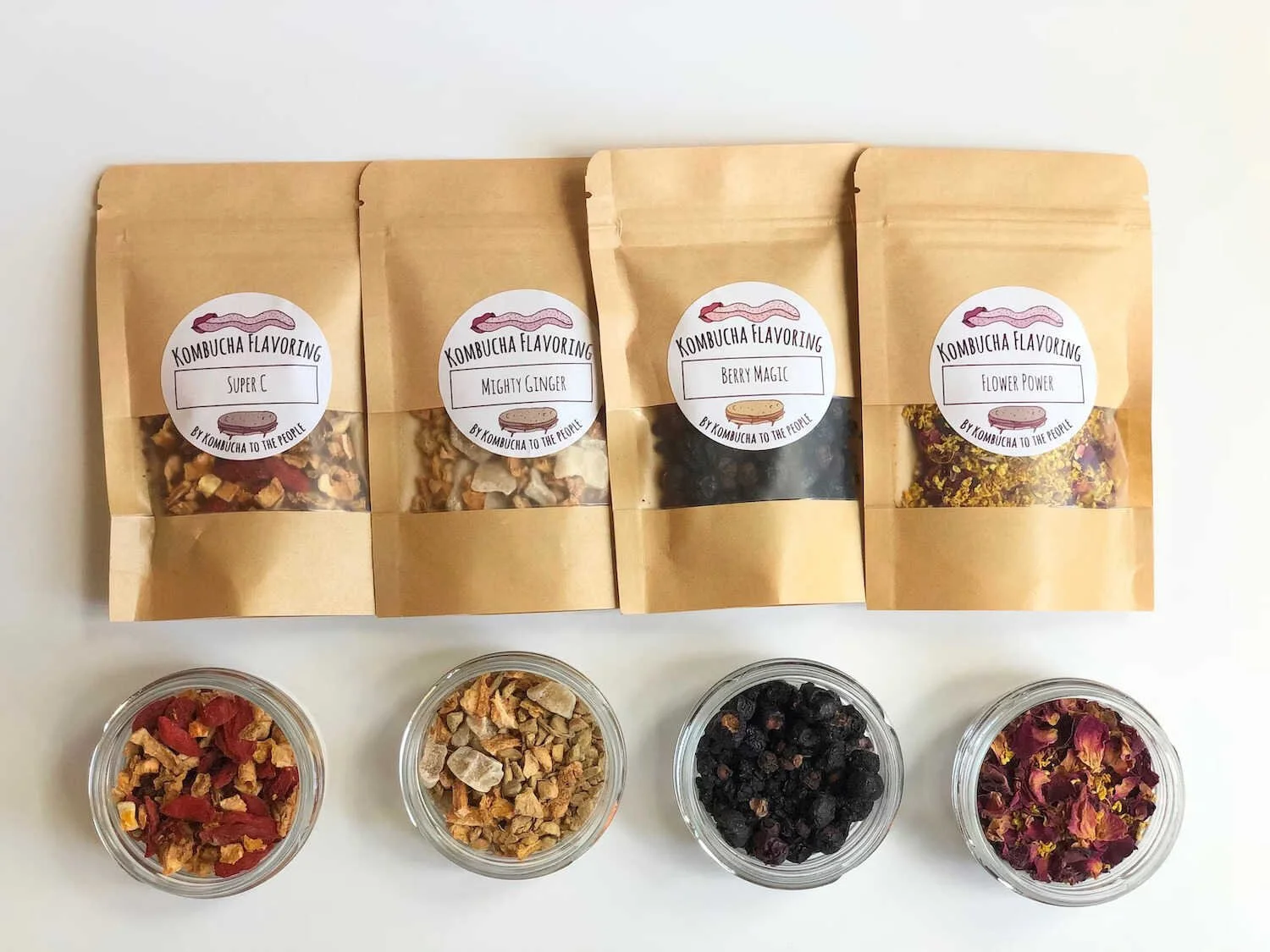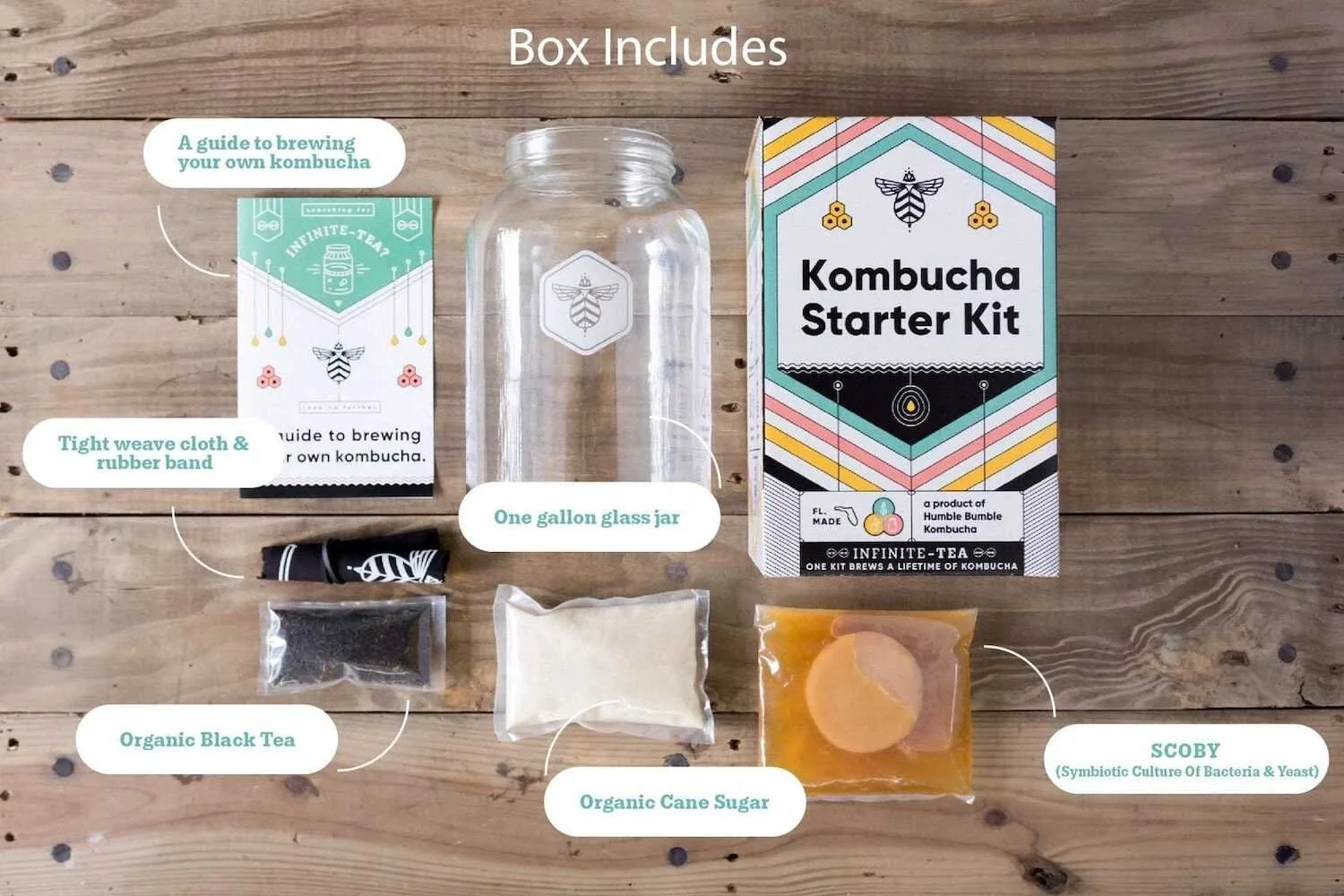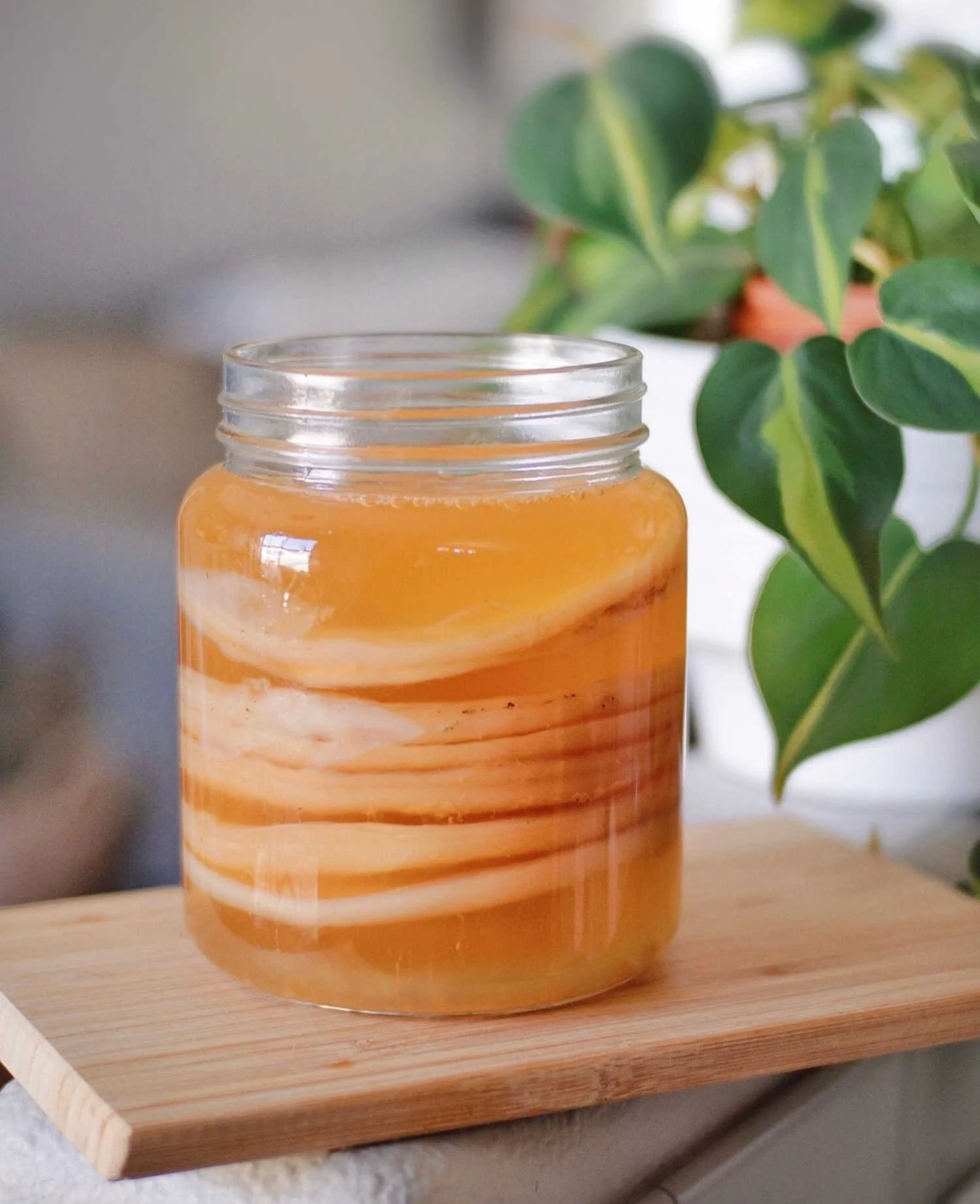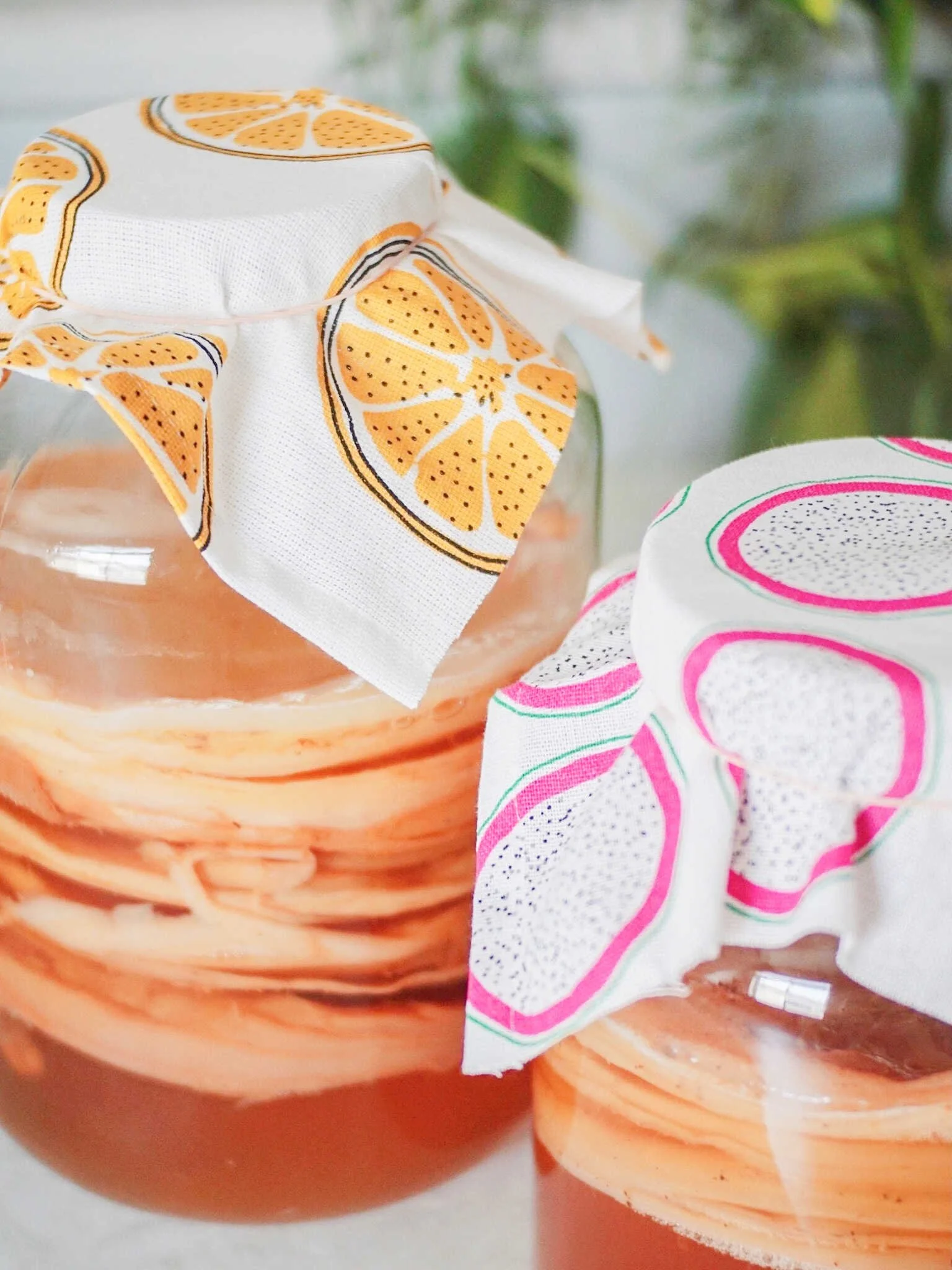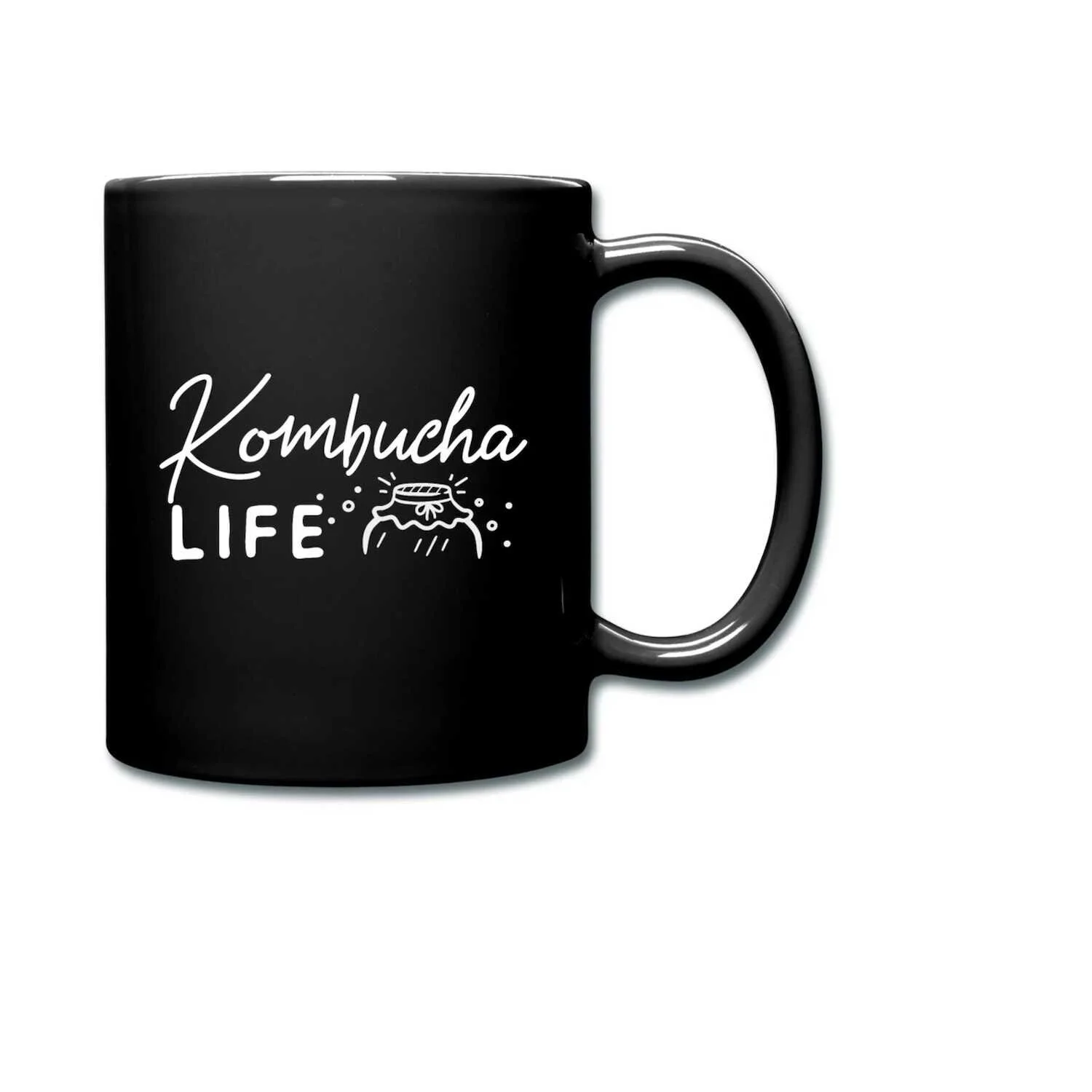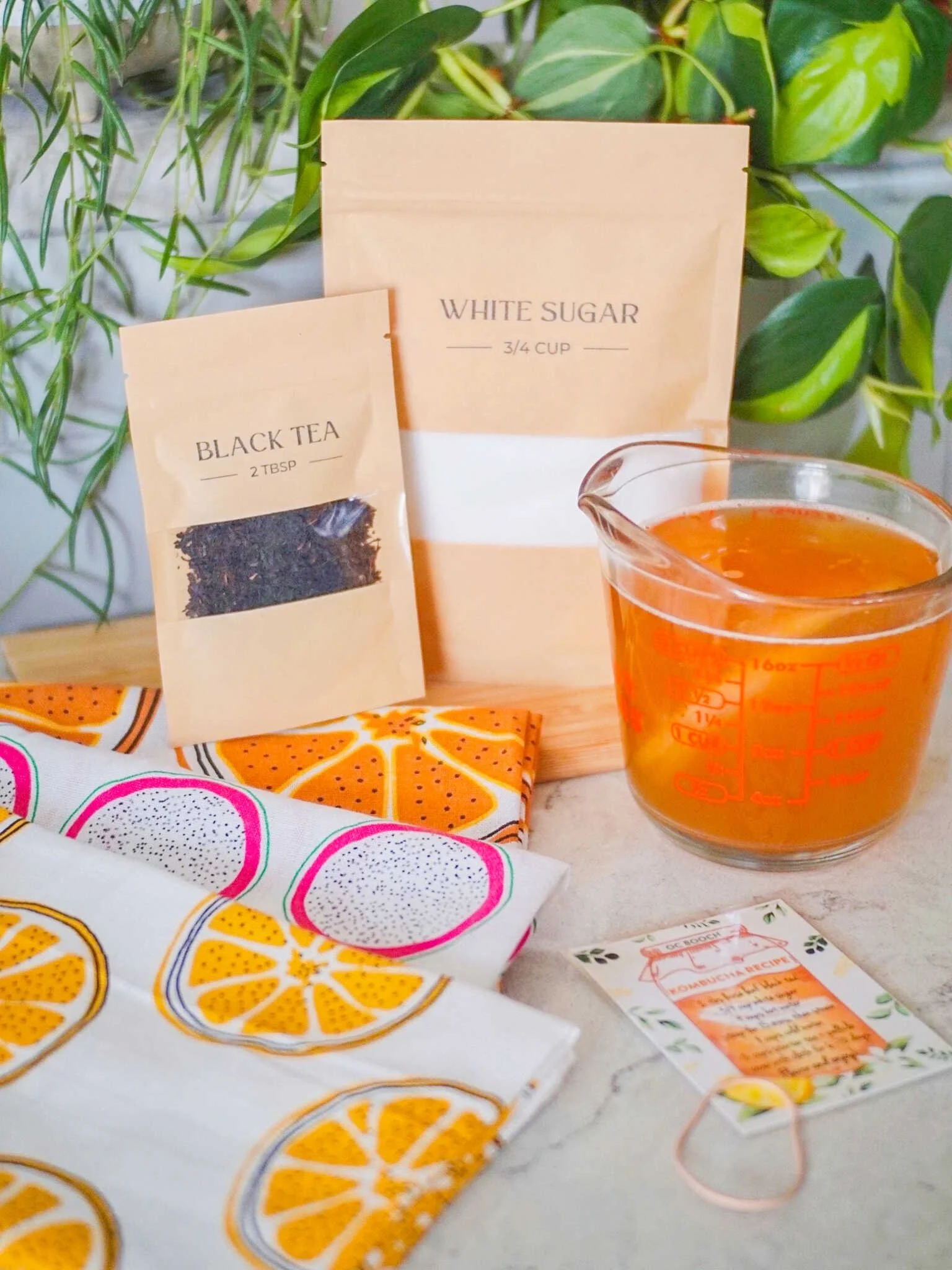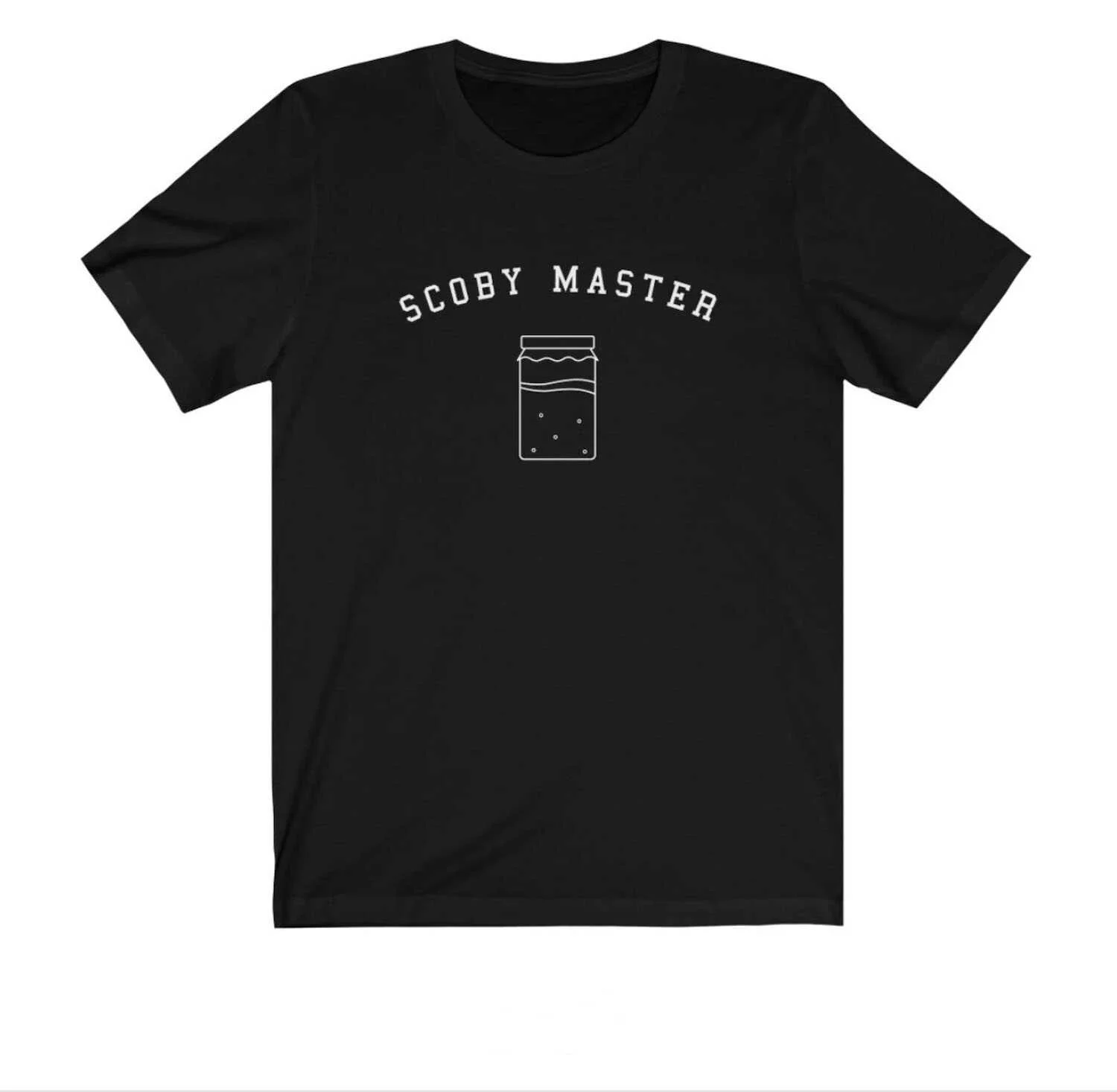Healthy Kombucha Swaps to Help You Reduce your Sugar and Alcohol Intake
Once upon a time, many years ago, this gal had a slight addiction to Diet Coke. I loved the carbonation, the slight sweetness and the extra zip of energy that it gave me. Fast forward into the future, I am now very aware of the unhealthy additives in sodas and I very rarely ever drink the stuff.
Removing soda from my life means that I had to somehow replace my favorite afternoon pick-me-up, which is how kombucha entered my life. I don’t remember the exact day when I first tried kombucha, but I know that it left a strong positive first impression and it wasn’t long before I was hooked. It really is a win-win when you can find a new guilty pleasure habit that is truly good for you.
A Brief History of Kombucha
With nearly two millennia of existence, kombucha still remains a curiosity nowadays. While many people have heard about kombucha, they might not be completely aware of its benefits. It was initially brewed in China and then spread to Japan and Russia, gaining popularity in Europe only in the early 20th century.
In recent years kombucha has really been brought forward into pop culture due to its strong following by health and celebrity gurus in Los Angeles. Wellness industry leaders such as Gwyneth Paltrow’s Goop brand often use kombucha in their drink and cocktail recipes.
Reducing Your Daily Sugar Intake & Making Healthier Choices
Incorporating kombucha into your daily routine comes with fun and creative ways to reinvent well-known drinks while adopting a healthy lifestyle and developing a hydration routine. All of the properties of kombucha alone can help you make a healthy choice for your regular practice – you can make your own brew, get it from your local specialty store, or even get kombucha on tap to have at home and consume at your own discretion.
The low amounts of alcohol make kombucha an excellent substitute for conventional party drinks and upgrade it as a preferred complimentary drink for its close to nonexistent levels of alcohol. The variety of recipes based on kombucha, which is filled with antioxidants and probiotics, promotes a positive outcome in the overall quality of life.
Nowadays, kombucha products have become a staple of health and are sold worldwide in stores, as well as online, in a wide variety of flavors by many specialized brands. Compared to other popular types of drinks, kombucha has fewer carbs, sugars, and calories and represents a healthier option and a fun way to enjoy the traditional tea features with additional health benefits.
What is Kombucha?
Kombucha is a fizzy sweet-and-sour drink mix made with green or black tea, yeast, and sugar, which is set aside for a week or more. During this fermentation process, acids and bacteria grow into the drink, together with a very low amount of alcohol. These ingredients form a film on top of the substance called a SCOBY – a symbiotic colony of bacteria and yeast, which can be used to further ferment more kombucha. SCOBY is essential for fermentation and can be made from scratch or obtained from a trusted source.
This lower-calorie and lower-sugar beverage contains enzymes, amino acids, and antioxidants. The lactic-acid bacteria working as a probiotic and the fresh dose of B vitamins have sparked a rise in kombucha sales all throughout the U.S. Its reputation as a health and energy drink that helps alleviate a wide variety of ailments has turned kombucha into the go-to drink for wellness enthusiasts.
How Do You Make Kombucha?
Brewing kombucha can be described as a two-stage fermentation process:
Beginning Stage of Brewing Kombucha is the First Fermentation
First fermentation takes about 1-2 weeks. It starts with boiling water into a pot, adding tea bags, and then sugar after removing the tea bags. Once the sugar is dissolved, the mixture is cooled down, and the SCOBY is poured in. This is when the fermentation process begins. After this two-week period, the base beverage can be consumed. However, if second fermentation is desired, the drink should be bottled and sealed for up to an extra week.
Kombucha Second Stage Fermentation Includes Adding Flavors
Second fermentation can take up to one week, and it is an additional step where the drink achieves its effervescence, and various flavors can be added. 100% organic juice is highly recommended for flavoring the base kombucha, and for proper carbonation, bottling it in decontaminated swing top jars or bottles.
Create some cool new flavors with your home brewed kombucha! As outlined above, the second stage of fermentation with kombucha includes adding fruity or herbal flavors.
What Are the Health Benefits of Drinking Kombucha?
Kombucha is known for its probiotic effects; the beneficial bacteria aids in the repopulation of gut flora with microbes that improve digestion, help strengthen the immune system, decrease inflammation, and possibly help with weight loss efforts.
Packed with vitamins and nutrients, drinking kombucha can bring numerous other health benefits, some of which include gut health improvement. Kombucha is full of healthy bacteria with gastro-protective properties, also known as probiotics, which improve overall digestion and have the ability to help with digestive problems such as - abdominal distension, painful gastritis, and gastroesophageal reflux.
Furthermore, given the presence of lactobacilli in kombucha, a common type of probiotic, the digestive tract is stabilized, and studies have shown that this could assist with bloating, intestine inflammation, and even irritable bowel syndrome.
In addition, some may find benefits to include decreased inflammation, a rise in serotonin which helps with mental health, a boost in energy, and kombucha has been studied for its effects on increasing “good” HDL cholesterol as well as helping diabetics manage blood sugar levels.
If you’re feeling crafty and up to the challenge, you can start brewing your own kombucha at home. Start small with an easy DIY kit which comes with all the essentials you’ll need to learn the process.
Kombucha is An Ideal Alternative to Sugary Drinks
The negligible sugar and alcohol content in kombucha make it the perfect replacement for soft drinks and other less healthy beverage options. Sugar has a high level of empty calories, and when consumed in excess, it stores calories within the body, leading to weight gain and other associated conditions. Aside from regular plain water containing zero sugar, kombucha a great next best alternative, with only about 6g of sugar per cup.
In comparison, at the other end of the spectrum, we can identify sports and soft drinks, with a min. of 27 g and 38g per cup. The effect of these beverages is a temporary boost of energy, as they are not only high in sugar but some also in caffeine. Further negative results may lead to sleep and digestive troubles, dehydration, and anxiety.
Embracing new healthy habits that involve replacing sugary beverages with kombucha, vitamins, and nutrients might just be the perfect start for overall well being.
A healthy SCOBY is essential for fermenting kombucha. On Etsy you can buy organic SCOBYs from kombucha experts. They are also known as “kombucha mothers”, “kombucha starters” or “kombucha mushroom.”
Beginner’s Guide to Shopping for Kombucha
Most health goods stores currently sell a wide variety of kombucha, and many brands strive to perfect their recipes and constantly reinvent their products. Aside from traditional mixes with green or black tea, there are also a lot with flavors containing fruit juice, which seem more appealing to consumers.
Shopping for kombucha 101, the basics for beginners. When shopping for kombucha, the following tips can prove highly useful:
Avoid beverages with high added sugar intake per serving. Some products may contain added sugar after the fermentation process.
Make sure to check the label of the product when trying to limit the alcohol and carbohydrate intake. Pure kombucha does not contain added juices or high sugar and alcohol levels, unlike hard kombucha, which might generate more fluid loss, thus inhibiting proper hydration.
Look for natural ingredients in kombucha products that are flavored with herbs and spices and not artificial compounds.
Pay attention to the packaging, as darker glass bottles are meant to protect the drink against light, which may damage the containing bacteria.
When you are home brewing your own kombucha, you never want an air-tight sealed lid on your glass container. The ideal cloth cover is made of tightly woven cotton fibers which will keep out dust and bugs, but still allow your SCOBY to breathe with airflow.
Easy & Tasty Kombucha Recipes
Consuming healthier drinks that can successfully replace other beverages of choice and still keep the same delicious properties, not to mention added benefits, seems almost too good to be true… And yet, there are many alternative recipes to alcoholic or sugary mixes that we have tried and give our seal of approval.
Kombucha Floats
Perfect for the summer! Just add scoops of ice cream and top off your favorite kombucha with whipped cream. Add the mixture to a mason jar and pour fudge or fruit inside. Decorate the beverage with toppings, if desired.
4th of July Festive Kombucha Drinks
Make some red, white, and blue kombucha beverages for guests as you prepare for the Independence Day celebration. Pour red-colored kombucha into a glass and top with whipped cream. Decorate with strawberries or blueberries, and enjoy!
Tropical Kombucha Punch
This tropical vacation in a glass is packed with fruit-flavored vibes. Adding fresh slices of pineapple, mango, or citrus to kombucha, and topped with ice, is a fun way of achieving a tropical ambiance anywhere.
Raspberry Lemonade Kombucha Punch
Simply add raspberry lemonade flavored kombucha to lemons, lemon juice, raspberries, blueberries, and strawberries, and serve the mixture in a punch bowl with mint leaves and ice, and you will get the perfect family drink.
Ginger Lemon Kombucha
A refreshing and elegant beverage that is perfect for the days you just want to unwind. Just get a ginger lemon kombucha, add fresh lemon and mint leaves, crush some ice, and garnish with a lemon wedge.
Martini-Inspired Kombucha
These flavored drinks mask the fermented kombucha taste, perfect for those new to the beverage. Combining ginger beer with lime and beets can deliver a well-balanced sweet taste while packing a strong nutritious punch.
Mulled Kombucha
Perfect for the winter holidays, this recipe comes as an alternative to the typical mulled wine. Boil kombucha and add lemon zest, cardamom pods, cinnamon, star anise, and sugar, if needed. Remove the ingredients after letting the mixture sit for a while and serve in a festive Christmas cup.
Shop Kombucha Fans Favorite Products:
After all your hard work brewing your own kombucha, you’ll want a special drinking vessel to commemorate the first few sips of enjoying the fruits of your labor.
If you feel daunted on how to get started with brewing your own kombucha at home, the easiest way to ease yourself into the process is with a simple DIY kombucha home brew starter kit.
Looking for the perfect gift for the SCOBY Master in your life? A kombucha themed tee makes for an awesome personalized and thoughtful birthday or holiday present.

